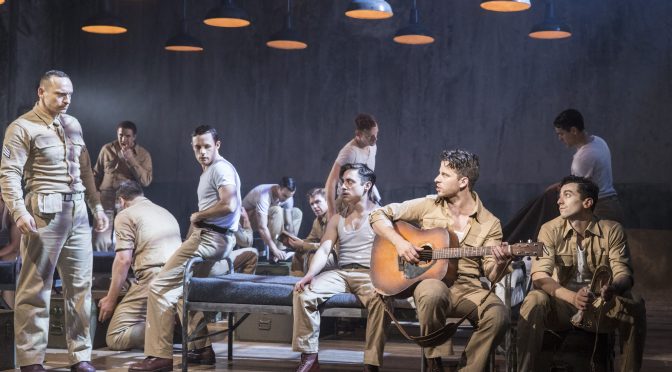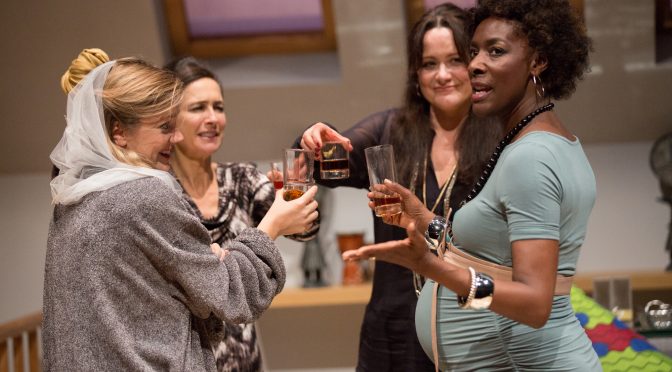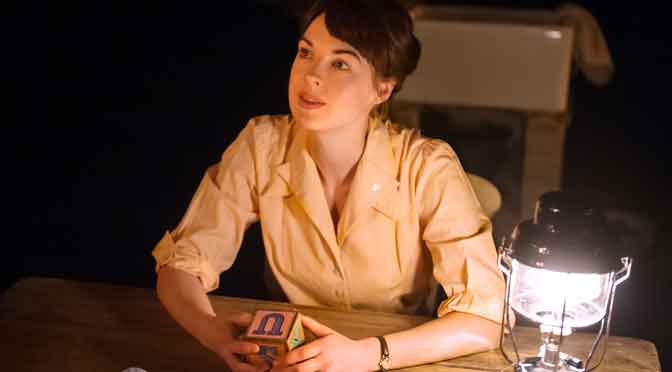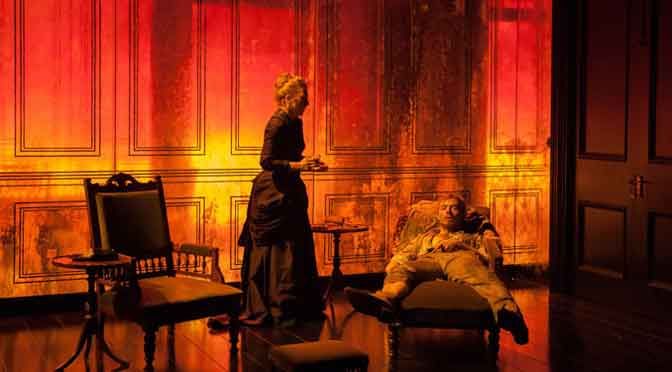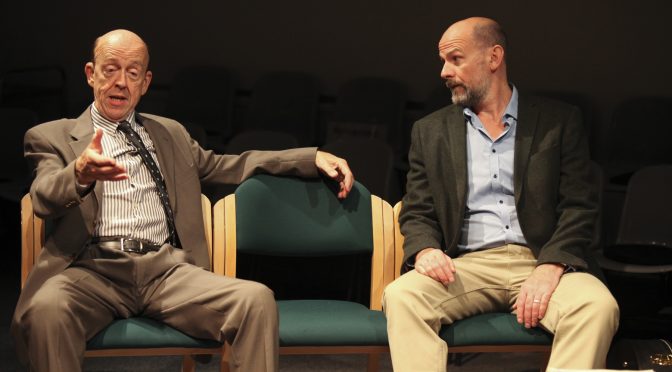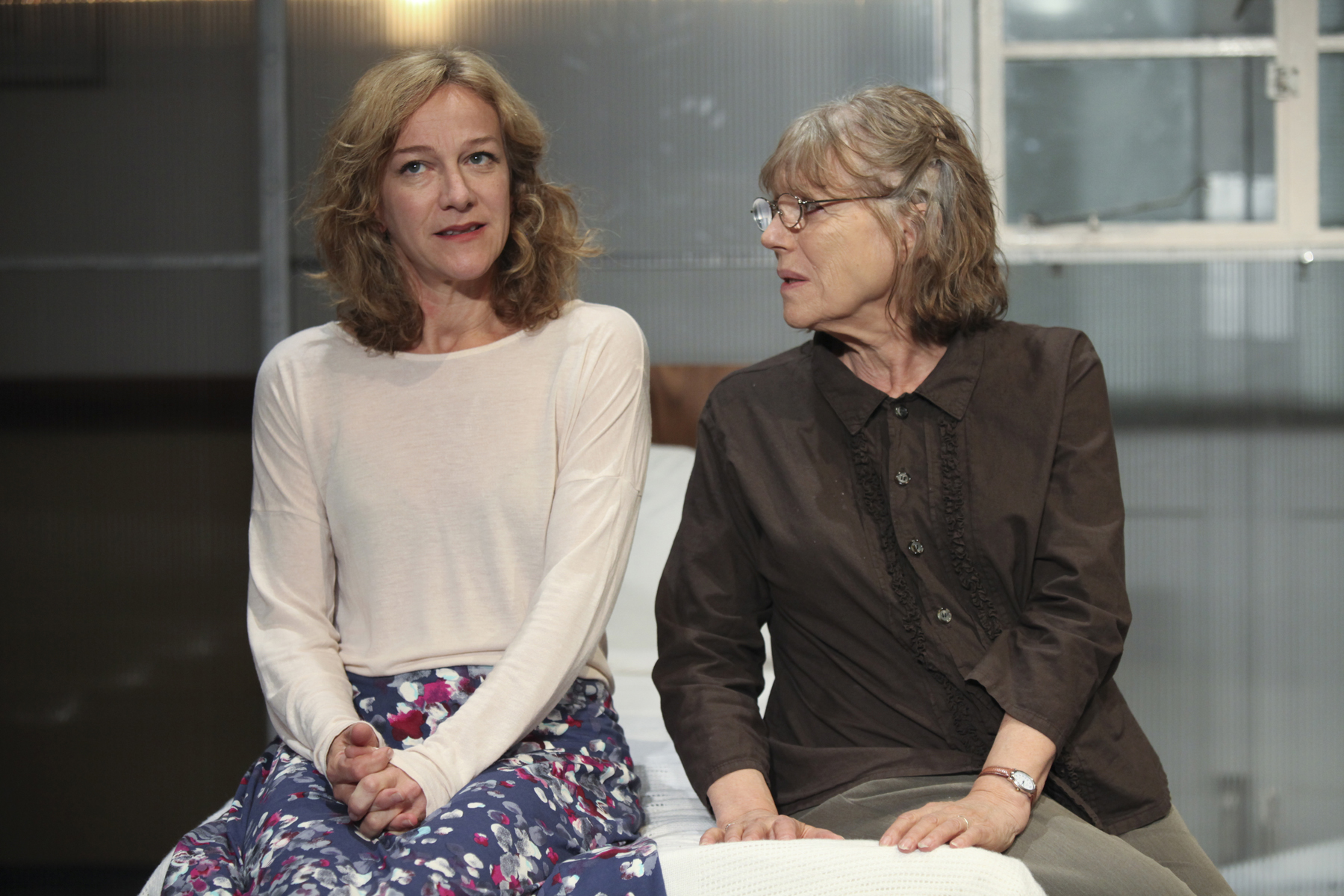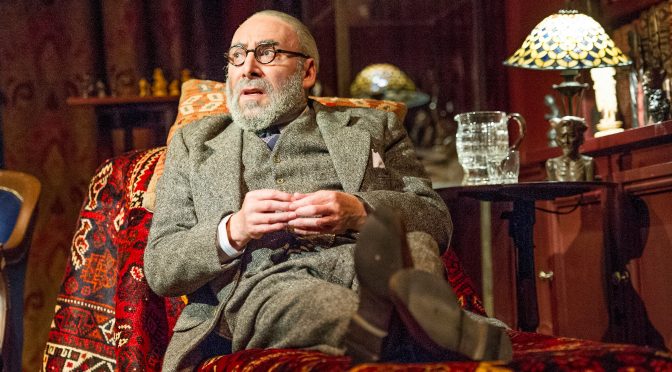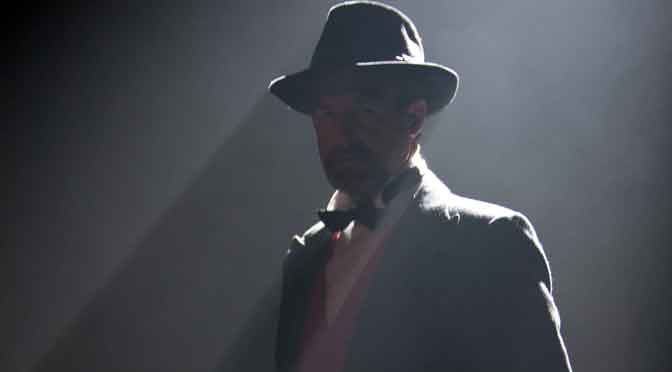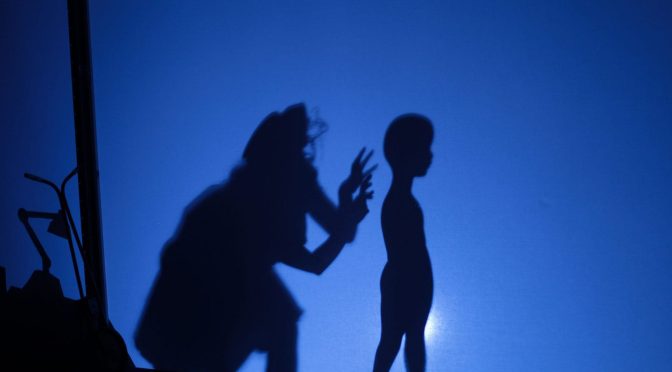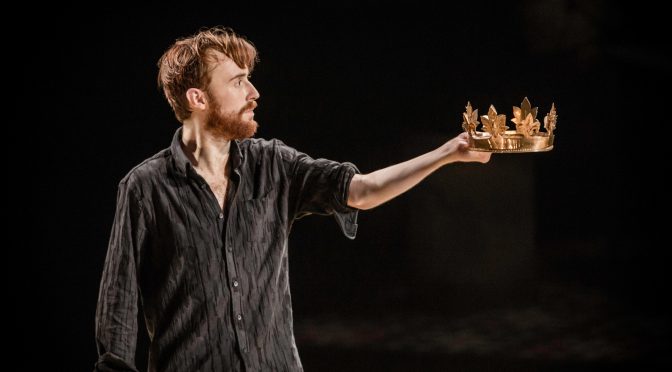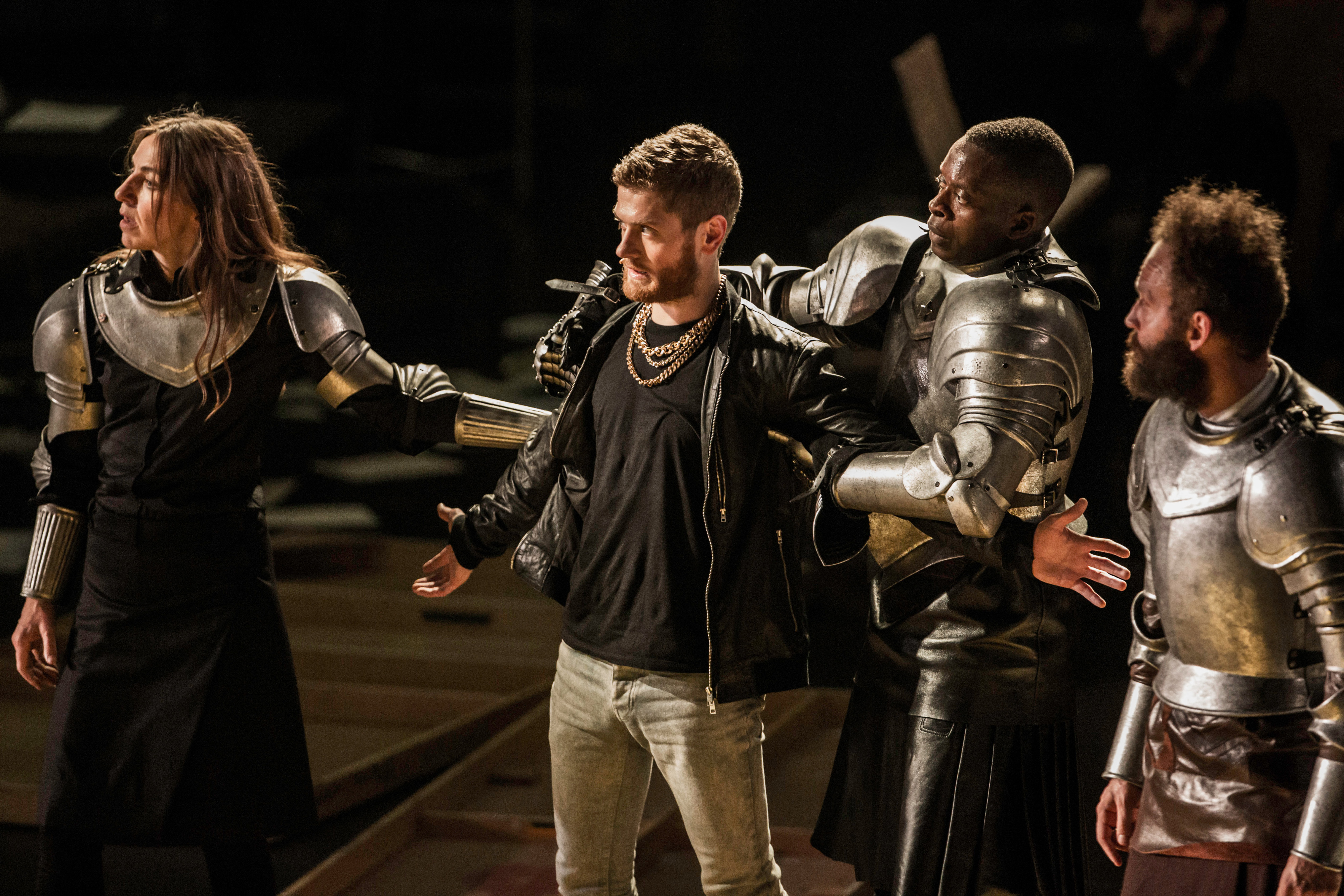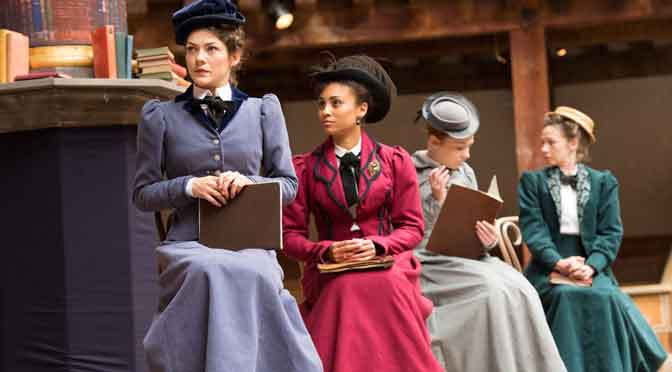From Here To Eternity – The Musical opened this week at the Shaftesbury Theatre. The story of military lives and loves, based on James Jones’ novel, is set on the eve of Pearl Harbour. Famous because of the multiple Oscar winning film from 1953, this version is grittier than anything Hollywood could have produced that year. It’s a grown up affair, reminding us that musicals can deal with adult themes and complicated passions and crediting its audience with intelligence – and all the better for that.
The book by Bill Oakes and lyrics by the old maestro Tim Rice catch the attention. There’s no shying away from sex here, as First Sergeant Milt Warden starts a sea-soaked affair with his Captain’s wife Karen, while Private Robert E Lee Prewitt falls in love with a prostitute while battling with pressure from his comrades to return to the boxing ring, where he once blinded a man. There’s a lot going on. The language and violence of the soldiers, bored while waiting for war, has an authentic brutality.
A bold approach to the story is backed up by music from Stuart Brayson, who makes a startling West End debut. Drawing on a variety of styles, that nearly all hit home, this is an accomplished score and highly entertaining. Combined with Rice’s lyrics, there are several fine examples of characterisation. Choreographer Javier De Frutos works marvels with some adventurous dancing that shows off the strength of the male ensemble.
Tamara Harvey directs, dealing effectively with the exciting plot and providing time for the cast’s acting skills. The female characters, a frustrated wife and tart with a heart, are less well served than their love interests. But Rebecca Thornhill and Siubhan Harrison match the leading, male, roles in skill. Robert Lonsdale takes charge, giving a stirring performance as the independent Private Prewitt, while Darius Campbell sounds fantastic as Warden.
There is no shortage of achievements here, not least a satisfying cynicism and a look at big themes that have you itching to go back to the source material. An impressively dark tale, trying hard to be unsentimental and ending with a twist I thought brave – it can’t just be the downbeat subject matter that makes you leave slightly uninspired. A shame since few opportunities to impress are lost – the show just lacks that final spark. It’s a brave critic that offers predictions: stranger musicals than this one have gone on to success and some with fewer merits. I doubt From Here to Eternity will run forever, but it has enough going for it to hold its head high.
Booking until 26 April 2014
Written 24 October 2013 for The London Magazine

